Key Takeaways
Implement measurable goals and outline realistic targets for occupancy and revenue, ensuring each is trackable over time.
Optimize tech solutions and streamline day-to-day tasks (calendar syncing, messaging) with a property management platform for better efficiency.
Future-proof operations: Plan for evolving Airbnb services like Experiences and hotel-style amenities to remain competitive in the long run.
Most beginner short-term rental (STR) hosts dive in fast by listing a property, scrambling for bookings, then rushing to clean before the next check-in.
But without a solid Airbnb business plan, growth will inevitably stall while the tasks pile up. A clear plan transforms daily chaos into predictable systems, helping you hit your numbers without burning out.
This guide keeps things simple. We’ll break down exactly what to include in a 2025-ready Airbnb business plan. You’ll learn how to define goals, plan for optimal performance, and incorporate the right tools that save time and boost revenue.
Why You Need An Airbnb Business Plan
Running a short-term rental without a clear plan can quickly go south when bookings slow down, regulations shift, or guests need last-minute changes. An Airbnb business plan keeps priorities clear and gives structure to your goals, helping you track real performance and cutting out guesswork when your calendar isn’t filling up the way it used to.
Today, Airbnb supports seven property types, hotel-style services in over 260 cities, and immersive experiences led by locals and even celebrities. Guests now expect more than a simple place to sleep. They book based on quality, amenities, and the overall experience. Hosts who plan for these expectations stay competitive, and hosts who don’t will fall behind.
Travel behavior is shifting fast. Many guests compare STR listings to boutique hotels, not just to other rentals. Some work remotely and stay longer. Others want on-demand services (like a private chef or massage) along with fast Wi-Fi and blackout curtains. A clear plan helps you stay ahead instead of playing catch-up.
A plan also keeps you from wasting time. When you're managing turnovers, guest messages, and pricing all at once, it's easy to lose sight of what actually brings in revenue. Writing down your target guest profile, pricing ranges, service standards, and projected occupancy makes it easier to say no to distractions and yes to the things that move your numbers.
You don’t need a 40-page document. You need a clear plan that helps you make faster decisions when things inevitably shift.
Save yourself from your inbox
Automate with Uplisting
Automated guest messages keep your guest informed from booking through to check-out. They’re designed to answer questions before they arise, saving you time whilst keeping your guests happy.
Step 0: Defining Your Mission And Vision
Every Airbnb business plan should include a clear and personal direction.
For many short-term rental hosts, the mission is simple: create financial breathing room while offering a stay that feels personal. From there, you can start to layer in things that help your business stand out.
Personal values shape the guest experience in ways that go beyond amenities. If sustainability matters, add refillable soap dispensers and avoid single-use plastics. If hospitality comes first, streamline check-ins and respond to questions before guests ask. If time is your biggest constraint, set up systems that reduce manual work. The clearest values show up in the smallest details.
A strong mission and vision guide growth and keep it intentional. Clear goals make it easier to choose upgrades, prioritize tasks, and stay focused when distractions creep in.

Key Components For 2025 Readiness
The most lucrative short-term rental operations recognize that Airbnb’s model has shifted. Hosts now compete in a space where travelers expect boutique-level design, on-demand services, and tailored experiences. A strong Airbnb business plan needs to reflect what guests actually want in 2025 (and not what worked three years ago).
1. Executive summary
Start with a one-page overview that spells out your strategy. Who are your guests? Weekend couples, remote workers, families traveling off-season? Choose a guest profile and design every part of your listing around their needs. If you’re setting up a vacation home or boutique stay, include that in your positioning.
Also be sure to outline how you’ll offer Experiences and Services if that's part of your roadmap. Whether it's a guided hike, private cooking class, or access to a local yoga instructor, describe how you’ll package and promote it. Airbnb's expanding service categories now influence search rankings and booking behavior, so planning ahead matters.
Avoid generic goals like “more bookings.” Instead, write something like: “Increase occupancy from 58% to 72% by Q3 through midweek discounts and Experience add-ons.” Clear and specific goals help you measure what’s working without second-guessing.
2. Market and competitor analysis
Set pricing based on current market behavior, not instincts. Pull local short-term rental data including occupancy patterns, average daily rates, booking windows, and seasonal shifts. Then go deeper by analyzing nearby listings with similar sizes, amenities, and guest capacity.
Look at what they charge, how often they update calendars, and what photos they use. See how many reviews they’ve earned in the last six months. That tells you more about demand than a static listing ever could.
Don’t ignore hotels or boutique stays. Many now offer flexible check-in, curated design, and perks like luggage storage or on-site dining. If your property offers none of that, pricing needs to reflect the gap or your experience needs to close it.
3. Operations plan
Daily management often causes the most stress. Missed cleanings, last-minute bookings, and scattered guest communication all create avoidable problems. Write down every recurring task—cleaning coordination, check-in prep, guest messaging, supply restocking—and assign a workflow to each.
If you send the same message more than once a week, automate it. If you manually track cleaning dates, set up a recurring calendar or use a scheduling tool. Even with a lean operation, systems reduce mental load and eliminate mistakes guests notice.
Include how you’ll manage guest issues after hours, assign cleaning jobs, and monitor reviews. A few checklists go a long way when you bring in a co-host or cleaner who isn’t familiar with your standards.
4. Financial plan
Break down every cost before your first booking.
List setup expenses like furniture, photography, linens, and smart locks. Then separate fixed monthly costs like Wi-Fi, insurance, and subscriptions from variable ones like utilities, cleaning, and supplies.
Factor in Airbnb’s Experiences or Services fees if you plan to offer extras. For example, if you bring in a licensed massage therapist or chef, decide whether you’ll mark it up, pass it through, or bundle it with premium bookings.
Add projections based on realistic occupancy levels. Don’t assume 90% year-round. Use local averages and include low-season dips. Outline your breakeven point and how many nights you need to cover costs. If you plan to scale, include how remote help or automation reduces labor costs as your listing count grows.
Initial setup: Furniture, locks, photography, linens
Monthly overhead: Utilities, cleaning, software, insurance
Revenue forecast: Based on average daily rate and projected occupancy
Cost-saving tactics: Remote team coordination, automated guest messaging, digital check-in
When expenses are predictable, pricing becomes strategic instead of reactive.
5. Marketing approach
Depending on Airbnb alone creates risk. A solid plan includes multiple channels. Add a direct booking website, list on niche platforms, and connect with partners in the area. The wider the net, the more stable your revenue.
Focus on building social proof. Automate review requests, respond to feedback, and highlight guest testimonials in your listing and social media. A five-star review with specific praise—“spotless kitchen,” “easy check-in,” “quiet neighborhood”—drives more bookings than any headline.
Work with local businesses to offer co-branded perks. A coffee shop discount, museum pass, or wine tasting becomes a reason to choose your place over another. If you’re offering an Experience, promote it on your listing, social media, and in your pre-arrival communication. Guests book more confidently when they know what they’re getting (and who they’re supporting).
So automatic, you won’t know what to do with yourself
Put my rentals on autopilot
It’s simple to automate repetitive tasks with Uplisting's short-term rental software. You’ll save hours every week and eliminate human error. Go ahead — take some time off.
Additional Steps To Future-Proof Your Listing
Guests booking short-term rentals in 2025 are looking for comfort, thoughtful details, and a stay that feels tailored. A strong Airbnb business plan outlines how to hold guest attention as expectations rise and competition grows.
Add hotel-style amenities guests now expect
The gap between short-term rentals and boutique hotels keeps shrinking. Travelers want flexible stays with the comfort of services they’d normally associate with upscale hotels. Airbnb now offers add-on services like massage therapy, guided fitness sessions, and chef-prepared meals in over 260 cities. Guests don’t just want them—they search for listings that include them.
You don’t need to turn the property into a spa. Start with one or two value-adds. Partner with a personal chef for private dinners. Offer cleaning service for guests staying longer than a few days. Add a minibar with local drinks or snacks. Even small touches signal you’ve prepared the space with intention—and help justify a higher nightly rate.
The goal isn’t to copy hotel operations. It’s to offer comfort and convenience with flexibility guests can’t find in traditional lodging.
Upgrade to premium positioning
Properties with consistent five-star reviews, thoughtful design, and smooth check-ins are already ahead. Airbnb Plus and Beyond reward listings that meet higher standards with better placement, stronger branding, and access to travelers who care about quality over price.
Plus includes a checklist of design and functionality benchmarks. Beyond targets luxury travelers and includes concierge-level support for guests. Both programs expect you to maintain standards and offer consistent experiences.
Before applying, check your lighting, Wi-Fi speed, furniture condition, and overall design. If anything feels outdated or mismatched, fix it. You don’t need expensive upgrades, just intentional ones.
Offer a unique experience guests can’t Google
Airbnb’s push into curated Experiences and celebrity-led Originals signals a shift.
Guests want a story they can tell in addition to a cozy place to sleep. In saturated markets, personality wins over square footage.
Start with what makes your property or neighborhood different. A backyard pizza oven becomes a hands-on cooking class. A mountain view becomes a guided sunrise hike. A vintage record collection becomes a hosted listening session with local wine.
The host doesn’t need to be famous. Just knowledgeable and prepared. Listing Experiences alongside the property adds value and creates a reason to choose your place over nearby options that feel interchangeable.
Crafting a strong Airbnb business plan in 2025 means going beyond just listing a property and hoping for the best. It’s about aligning your mission with guest expectations, building operational systems that scale, and using data to guide every decision. With a clear structure in place—from financial projections and market analysis to automation tools and elevated guest experiences—you position your short-term rental business for long-term growth.
By planning ahead, staying compliant, and adapting to industry shifts, you’ll gain more control and build a brand that earns repeat bookings. Whether you're managing five units or fifty, sustainable growth starts with clarity, consistency, and the right tools behind the scenes.
Ready to bring structure and efficiency to your operations? Sign up for Uplisting to streamline your vacation rental management.
FAQs About Airbnb Business Plans
Do I need a separate LLC?
You don’t need to form an LLC to run a short-term rental, but many hosts do. An LLC helps protect personal assets in case of guest injuries, damage claims, or legal disputes. It also separates business finances from personal ones, which comes in handy at tax time. Some hosts see tax benefits depending on how the business is structured, though it’s smart to run numbers with an accountant. On the other hand, setting up and maintaining an LLC adds state filing fees and admin work. This can be worth it for some, unnecessary for others.
How much capital do I need to start?
Startup costs swing widely depending on property size, market, and condition. For a small apartment in a mid-tier city, budget around $5,000–$10,000 to cover furniture, linens, smart locks, photography, and supplies. Outfitting a larger home or going for a design-forward setup can push that number past $15,000. Don’t forget monthly costs like utilities, cleaning, subscriptions, and insurance. Keep a buffer for repairs or slow months as unexpected gaps in bookings hit harder without one.
Is marketing worth the cost if Airbnb does it already?
Airbnb handles platform-wide advertising, but that doesn’t replace your own visibility. Direct bookings, repeat guests, and better control over pricing come from building a brand outside the platform. A simple site, consistent social media posts, or local partnerships help fill gaps Airbnb can’t reach. Even a few direct guests per month can lower fees and give you more flexibility. Hosts who plan to grow often start marketing early to stay less dependent on a single source.
What if I want to add Experiences later?
If you’re thinking about offering Experiences, plan for them from the start even if you don’t launch right away. Whether it’s a cooking class, bike tour, or local tasting, Experiences take time to set up and promote. Build in ways to connect them to your rental: prep spaces, storage, or links in guest messages. That way, when you're ready to offer something extra, you're not starting from scratch.




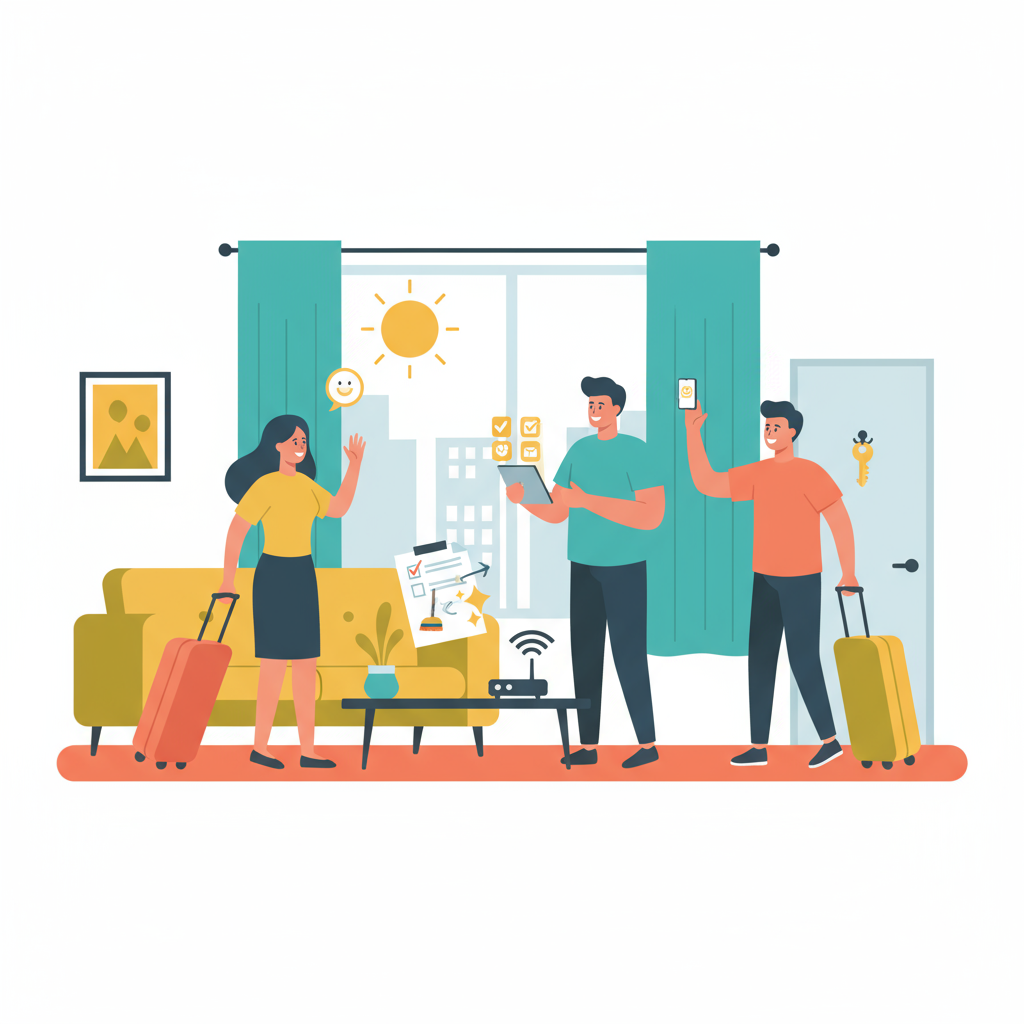
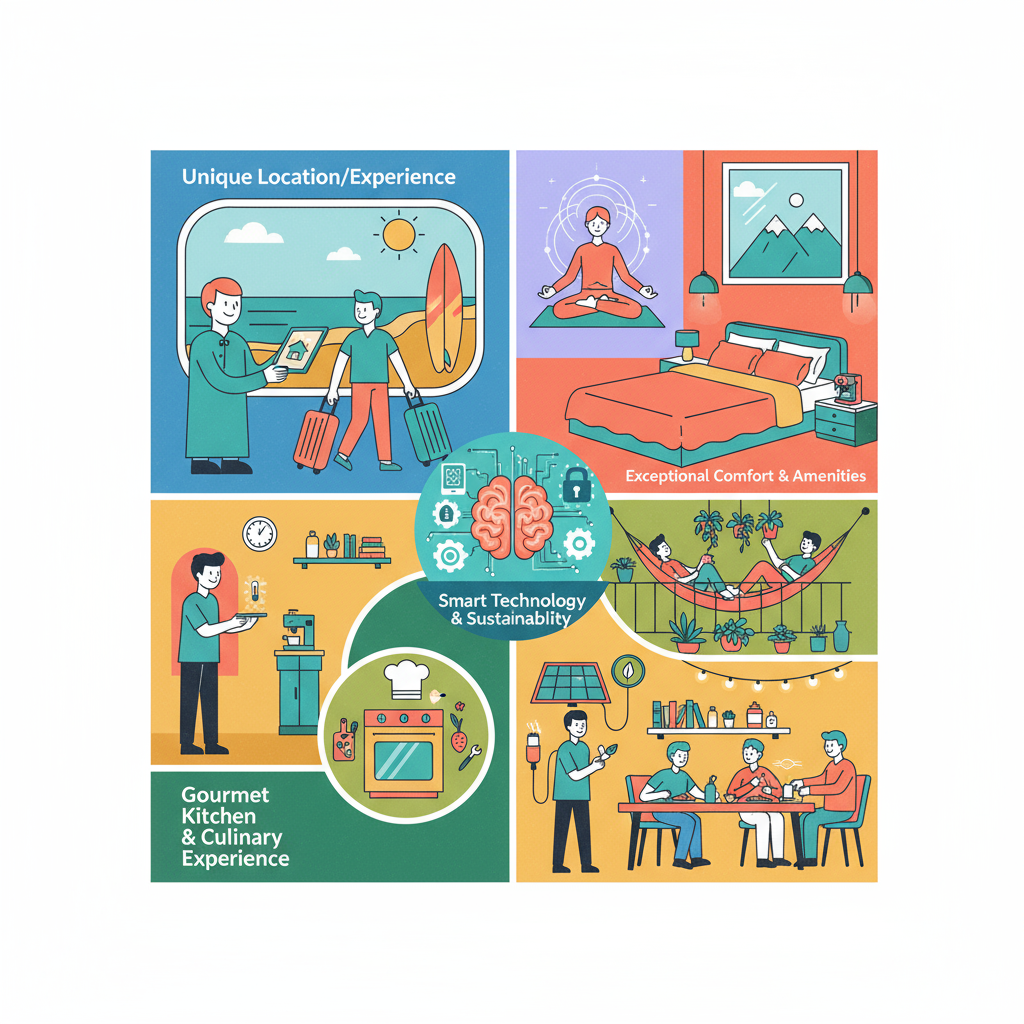





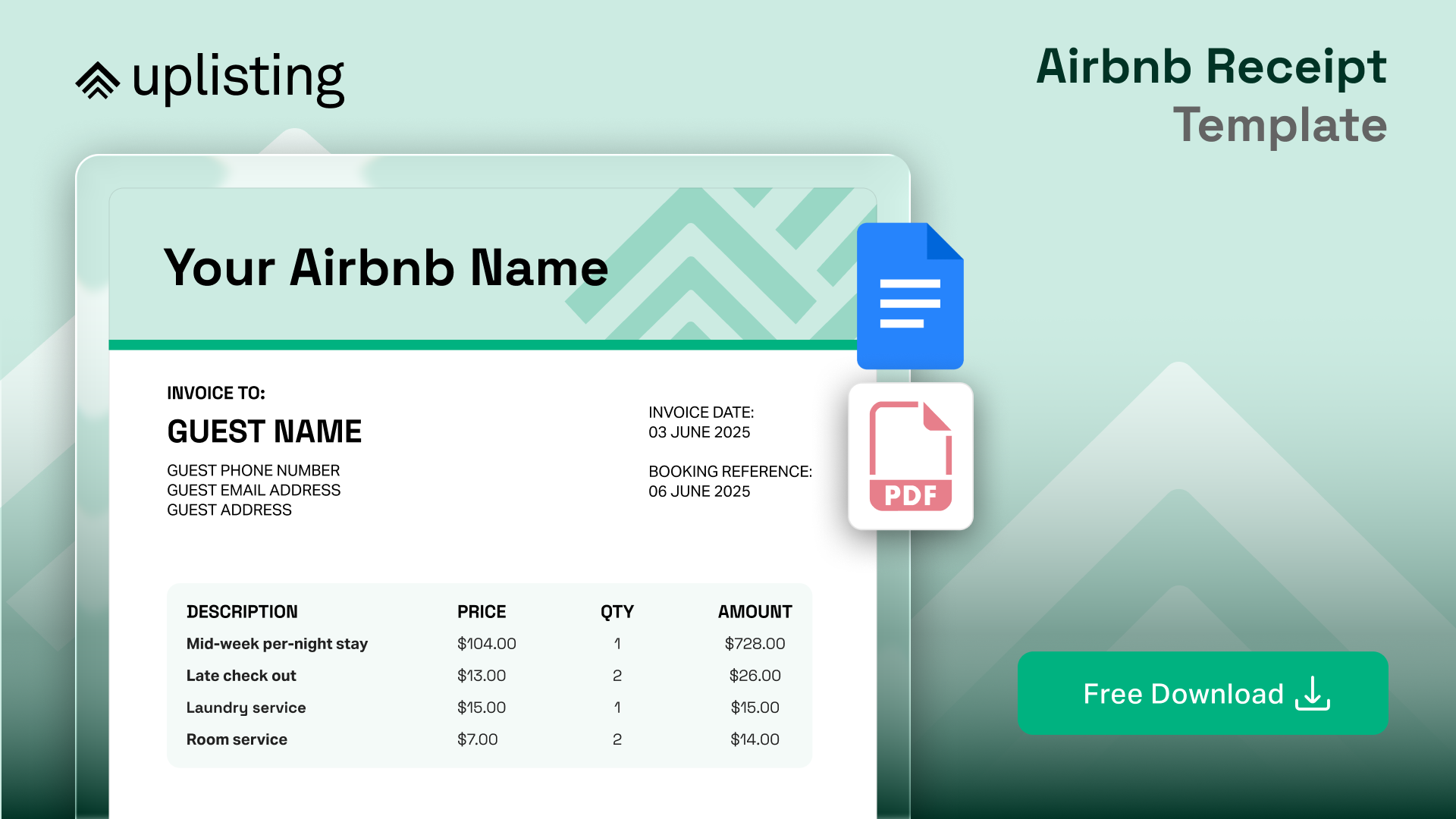

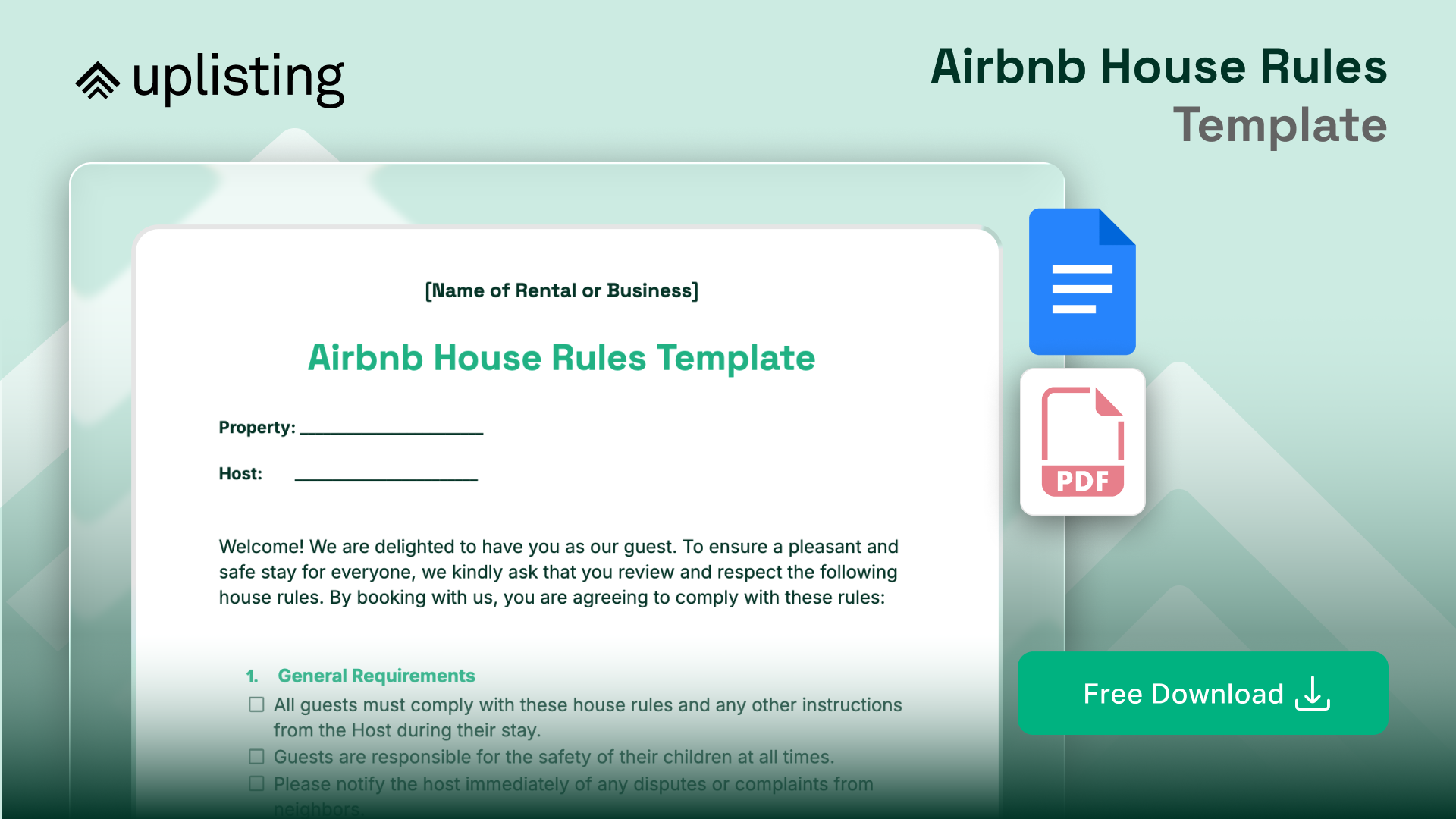

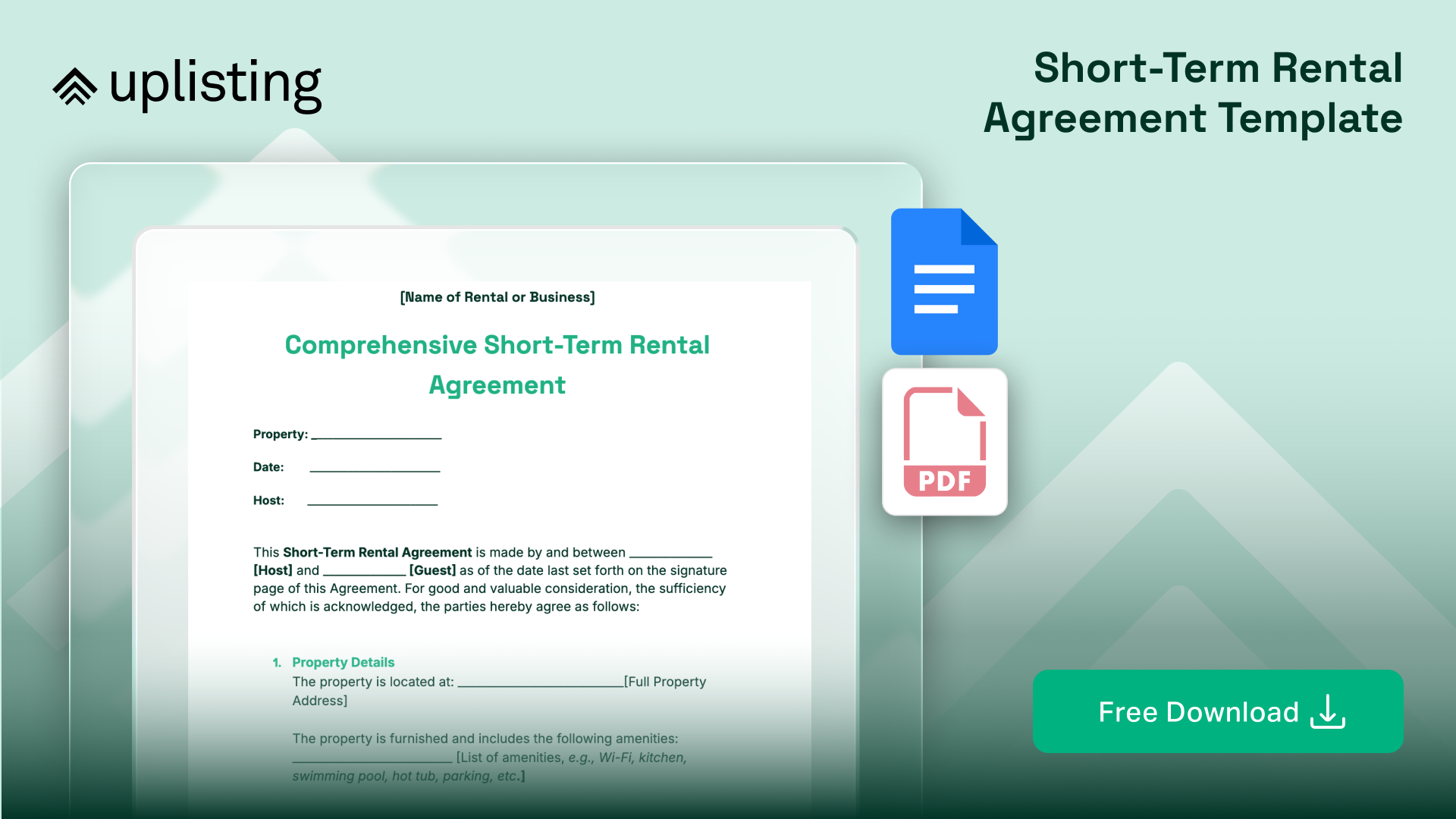


.png)

